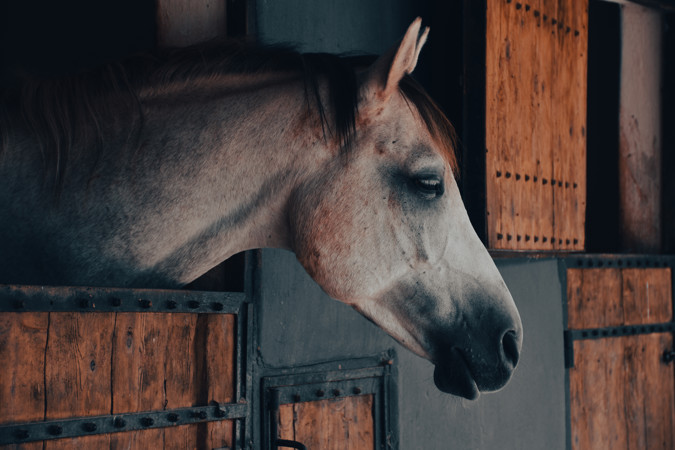Box Rest
28 Aug 2024
There are many reasons that horses of all shapes and sizes may need to be confined to rest. Acute injury, laminitis, dietary reasons, quarantine periods and of course the great British weather can mean that horses are stabled for prolonged periods. Despite being an often-successful way of treating veterinary medical conditions (and saving our fields!) box rest can have welfare implications.
What do we mean by welfare?
Welfare comes from the old English phrase ‘wel faran’ meaning to get on successfully and to prosper. Advances in welfare science indicate that to ensure welfare, animals’ sentience or ‘ability to feel’ must be considered and that on balance, animals must be provided with a life where positive experiences in their life outweigh the negatives.
Stress is experienced when negative experiences outweigh positives. Behaviour may be used to gauge that stress and vocalising, sweating, banging the door and doing the wall of death are obvious indicators in horses. However, studies show that seemingly contented horses can have similar levels of physiological stress. Natural behaviours are more likely to be prohibited during periods of enforced rest and horses may therefore lack positive experiences. This means that even if outwardly coping, horses on box rest are still at risk of compromised welfare.
Harnessing the good and limiting the bad of box rest
The ultimate aim of box rest is to maintain or restore optimal health to your horse whilst limiting any detrimental impacts on their physical and mental wellbeing. Your own emotional state and physical safety are important too. It can feel upsetting to manage a horse on box rest and horses who become frustrated can become more difficult to handle and to reintroduce to turnout and exercise and when the time comes. There are considerations that may help you to achieve more positive box rest experiences for you and your horse:
- Companionship, including physical contact is known to buffer equine stress. Ideally, horses on rest should continually be able to see, hear, smell and touch other horses. If not possible, full-length mirrors, frequent grooming and scratching by humans is encouraged.
- Training and learning new tasks provide distraction, engages horses mentally, is linked to ‘happy’ hormone release and can be a fun way to bond with horses during box rest.
- Environment enrichment with objects or food sources which stimulate horse’s senses are a must. The Blue Cross and BHS provide excellent resources.
- Medications that positively impact mood and induce calm can be very beneficial and be used in addition to other management strategies. We are happy to discuss options.
- Re-introduction of exercise after injury or illness should be planned on a case-by-case basis with your vet but reducing frustration that leads to rebound (and potentially dangerous) excessive running, rearing and bucking may be aided by introduction to incrementally larger pen and paddock turnout and in-hand walking to grazing.
What works for you and your horse?
Managing horses on box rest well takes commitment. One size does not fit all and it needs to work for you. We are happy to discuss interventions on an individual basis if/when you need to have that conversation.
